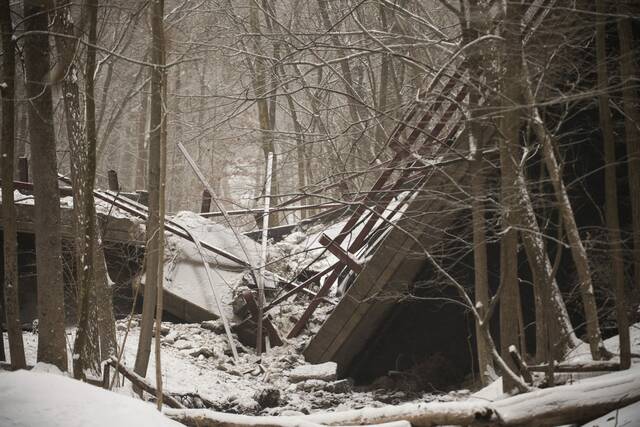Pittsburgh City Council on Tuesday approved several measures intended to improve the way the city investigates, reports on and provides funding for its infrastructure needs.
The measures come in the wake of the Fern Hollow Bridge collapse in Pittsburgh’s Frick Park in January, which has brought heightened awareness to the city’s infrastructure problems.
The first piece of legislation, sponsored by Councilman Corey O’Connor, will require the city’s Department of Mobility and Infrastructure to produce regular reports on the city’s infrastructure. The information would be publicly available.
The second measure, also sponsored by O’Connor, will create a commission to make recommendations on short- and long-term investments in city-owned infrastructure, including bridges and tunnels. The committee will include city officials, construction industry professionals, organized labor representatives and others.
The third piece of legislation, sponsored by Councilman Ricky Burgess, creates the Joint Pittsburgh Infrastructure Task Force. Its job will be to find new funding to improve the city’s bridges and tunnels, as well as other infrastructure needs.
The measures to create the commission and task force were unanimously approved by all council members present at Tuesday’s meeting. Councilman R. Daniel Lavelle was not present.
The legislation requiring reports on the condition of the city’s infrastructure earned support from seven of the eight members present, with Burgess abstaining.
“Practically, I call this a nightmare scenario,” Burgess said of the reporting measure. “We’re going to, to the public, list that our infrastructure is failing dramatically.”
O’Connor said the goal is to be transparent with the public, which he said has a right to understand the condition of the city’s bridges and other infrastructure.
Burgess also questioned the need for a commission to analyze the city’s infrastructure. The focus, he said, should be on finding funding to improve it. Without new sources of funding, he said the city might have to raise taxes to pay for necessary infrastructure improvements.
“We have other bridges that may fall down tomorrow,” Burgess said. “I think we should start this right now.”
O’Connor defended the commission, saying it will provide more focus on the city’s infrastructure needs and on prioritizing those needs.








